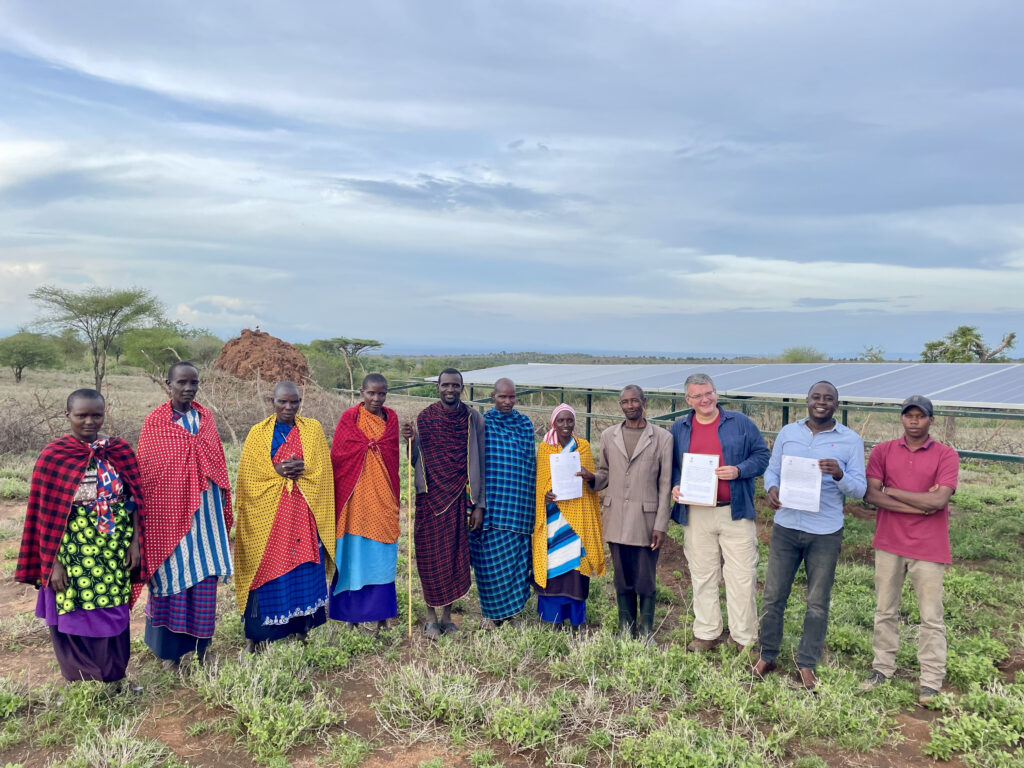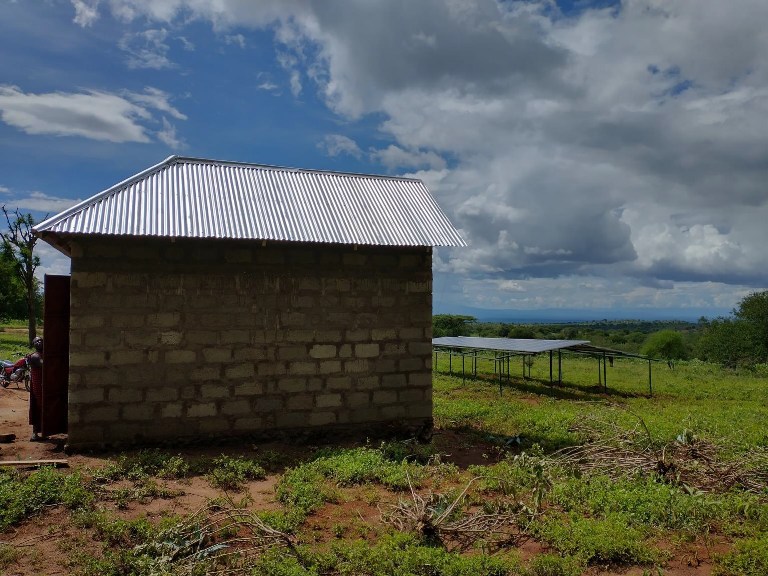Game changing solutions
Since 2017, we have developed and implement a number of sustainable off-grid technologies which uniquely combine with community-focussed business models to achieve lasting impact. Whilst we are always happy to work with new partners and customers to develop new ideas, technologies and models, these are the proven solutions that we would be delighted to implement for you in new communities around the world:

Solar borehole technology
All around the world, access to clean water means life and livelihoods. But many boreholes in remote regions rely on diesel generators to function – this means high costs of diesel and maintenance, logistical challenges of bringing the fuel to site, and low reliability and sustainability. We replace diesel generators in such systems with clean solar power systems and water supply business models that not only reduce unit costs, but also allow additional businesses – such as flour milling – to operate alongside the borehole to bring additional revenue and community impact.

Low-cost low-tech cold storage
One third of all food produced for human consumption is lost or wasted. The WFP estimates that for some farmers in developing countries, losses can be as high as 40% of the crop. Cold storage helps farmers to reduce losses and increase farm gate prices they can charge. But traditional solutions are expensive, rely heavily on imported components, and are difficult to power and maintain. We have developed a low tech, low cost cold storage solution for rural communities – using locally available materials for construction and insulation, and running 100% off solar power. In tests we have achieved temperatures as low as 2 celcius in our stores, and in the absence of cooling they warm up by less than 2 celsius per day. The solar power systems generate enough surplus electricity to also run other productive use services (phone charging, lighting, photocopying, even flour milling), which can help pay back the cost of the cold store systems within 5 years.

Community engagement
Our unique approach to developing solutions for communities involves getting to know the communities first, with their challenges, successes, power-structures and dynamics. We run a number of informal and formal community engagement tools and processes, from open meetings and focus groups to much more formal community service value tests that explore with different sectors of the community what their priorities are for development and change, the reason that these are important, the difference they would make to their lives, and the relative ranking and importance of these different priorities for community sectors. This allows us to build community value maps, which can be analysed by criteria such as short/long-term economic benefit, ease/cost of implementation, importance for women or marginalised sectors of communities. This information can then be used by us or our partners to develop a bespoke, optimised solution for the community that is targeted on community priorities and impact.

Community off-grid power systems
We develop stand-alone off-grid clean electricity systems for rural communities of any size – from 5kW to more than 100kW, typically supported by lithium-ion battery systems ranging from 5 kWh to 100 kWh. But we do more – we first work with the communities to understand their priorities and needs, and tailor the systems with different productive use technologies to make systems and business models which are sustainable and scalable, and empower the communities to manage, govern and maintain the systems themselves. Importantly, these systems are affordable, sustainable and reliable.

Rural Business Incubation
Sustainability for technology solutions in development means finding productive uses – but what if the communities involved don’t have any existing businesses or anchor uses for the technologies? We have developed an integrated package of technology, infrastructure, training and support – a Rural Business Hub – that allows rural communities to incubate new businesses and entrepreneurs, bringing economic development opportunities into the communities, and making technology solutions such as energy and water-access more cost-effective and viable.

Long-term broad-scope impact measurement
So often the impact evaluation of initiatives and projects are one-dimensional. We at SVRG believe that impact evaluation should be much more long-term and broad in scope. For example, the real measure of impact of an energy access project should not be how many particular systems were distributed in a community. The real impact should be measured from the difference that those systems have made to economic development of the community, educational and health outcomes, empowerment of women, reduction of inequality across the community and incubation of new businesses over 5 or 10 years! That is why we have developed a toolkit that allows us to perform this sort of long-term, broad scope impact assessment in communities. Starting with a detailed baseline survey, we follow up with communities regularly across the monitoring period to gather robust quantitative and qualitative date about the impacts and changes in target and control communities.

